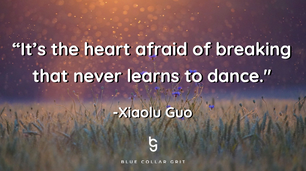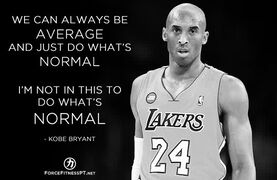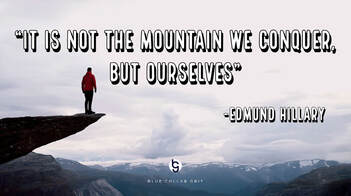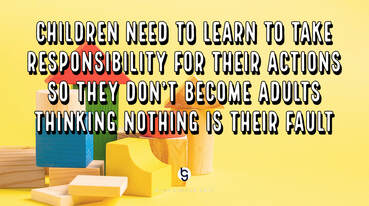Courageous & KindIf I had to identify the two most critical characteristics of the greatest leaders, or mentors, I have known, it would come down to these two: courageous and kind.
Are there better descriptors of the best leaders than courageous and kind? Sure, the argument for the need to be an expert in your field will come up. But, what good is knowledge without the courage to take action based on that knowledge and the kindness to apply it appropriately? Some could debate the need for the ability to build relationships as critical for a leader. And, of course, it is. However, it’s courage that allows us to introduce ourselves or say what needs to be said. It’s kindness that leads to the awareness of what another person needs to hear at any certain time. Courage and kindness are at the heart of relationship building. And, the ever-present focus on an elite work ethic is common for high achievers and leaders. Courage is what supports the willingness to sacrifice one thing for another. And, at some point in that process, kindness will become critical for maintaining the balance necessary to uphold that work ethic. Why Should We Care? What is courage? According to Miriam-Webster courage is the mental or moral strength to venture, persevere, and withstand danger, fear or difficulty. A good definition, I guess, but I would like to share with you what I think courage is. Courage is the only bridge to action. No courage, no action. A lot of things are said, and a lot of people are great at giving their opinions, but far fewer are willing to take action. What good are philosophers without activists? Self-awareness and the willingness to be vulnerable are critical traits of the best leaders I’ve known, but do they matter without the readiness to act on them? I don’t think so. I think there are plenty of people that know themselves, but never reveal themselves. I believe strongly in core values and their importance in living an intentional life. Sadly, there are a lot of leaders that have done the work to identify their core values, but lack the courage to live them on a daily basis. What is kindness? Kind is defined as of a sympathetic or helpful nature. Another solid definition by the Miriam-Webster crew, but I would like to offer my take on kindness as it applies to leadership. Kindness is unselfish. When we show, or don’t show, kindness to others we are communicating their importance to us and the team. Kindness gets a bad rap for being soft, but that is typically by people that don’t understand what kindness actually is. It’s not accepting excuses or lowering the standard. That’s the opposite of kindness. There is nothing ‘helpful’ about that. Relationships are important. There is no other way to say it or look at it. If you’re in leadership, or a person …, relationships matter. Kindness is the crux of all relationships. It is what supports the vulnerability and trust necessary to build them. REAL TALK - Action Steps Here are a few ideas on helping you to be just a little more courageous and kind.
Be courageous and kind. Everything may not fall exactly in place with just those two things, but a whole lot will. For more information on building excellence in your teams, visit us at www.bluecollargrit.com. We would love to know how we could help!
0 Comments
The EdgeYou hear people talking about it in the sports world all the time, but it holds just as much weight in our personal and professional lives. In sports, it has a way of standing out. The edge is one of those things that’s easy to see, but hard to define.
The edge is often described as a hunger, or thirst, for growth. People with an edge seem to be early risers and busy bodies. They’re constantly working on something in an effort to gain an advantage. The edge can also entail a significant amount of emotion. Most would use words like fiery, competitive, and passionate to describe people with an edge. For the best, this surfaces as positive energy that inspires others. The other side, of course, is when emotion gets the best of us and we react inappropriately to adversity. In my opinion, “The Edge” encompasses both of these perspectives but requires a much deeper understanding of ourselves and our purpose in order to truly be an edge. Why Should We Care? An edge gives us an advantage. Too much emotion, not an edge. Being constantly busy, not an edge. Our edge needs to be intentionally designed. It’s the opposite of indifference. It is the path to our purpose. There is no greater edge than the alignment of your values and purpose. If I could pick one word to describe having an edge, it would be urgency. When you have an edge, this moment matters. You’re not waiting for the next time or next opportunity. Now is the time. Always. You operate differently with that urgency as a mindset. Mistakes and successes are both moved past quickly. Not because they aren’t important, but because they aren’t now. The edge will push you to learn from both because each improves your chances for success in your next now. When you have an edge, you carry yourself differently. You’re confident in your resilience and ability to deal with whatever happens, yet humble enough to know you’re going to fail from time to time. The edge doesn’t guarantee victory, but it does guarantee growth. With an edge, you do walk close to the line. You take risks, which are scary. And, sometimes you lose. However, it’s clear to anyone around you that you are not indifferent - you have purpose in your actions. There is an urgency in your choices. REAL TALK - Action Steps I don’t think there is anything magical to give yourself an edge. No matter how many motivational speeches you watch or how much inspirational music you listen to, having, or not having an edge, is always your choice.
Find your edge. Live your edge. For more information on building excellence in your teams, visit us at www.bluecollargrit.com. We would love to know how we could help! Unspoken GratitudeIt’s easy to see in retrospect, but why do we have to look back to see it?
For me, it’s almost always a lack of courage to voice it. Gratitude and appreciation for those around you is critical for a leader. The trust it helps create is essential to the accountability and difficult conversations you need to be able to have in the future. I think most leaders recognize the importance of expressing gratitude, but I think most of the people we lead would also agree that they don’t receive it enough. The question is why: Why do leaders dismiss a job well done? Why Should We Care? Let’s begin with the first question: why do leaders dismiss a job well done? The most common response is that the people are doing what they’re supposed to do. They shouldn’t need to be told, “good job” for something they are supposed to do anyway. While I was somewhat raised under this philosophy, I now recognize how important it is to encourage the mundane and boring. Which, if you think about it, should be obvious. We like to think that excellence lies in the great performances and highlights. That couldn’t be further from the truth. Consistency wins. And, consistency is in the everyday. If we stop recognizing and honoring that, then those we lead begin to lose value in the importance of the very things that drive our excellence. Another reason we fail to share our appreciation is a personal flaw - we lack the courage to do so. I know, I know … you’re the leader. You rose to this position because of your courage. Yea, yea … this is different. Now you need to be open and vulnerable. Telling a team member what an incredible job they did on their last project may infer that they could possibly be better than you at that task. Or it could make you sound soft, touchy-feely, mushy! Guaranteed - the longer you lead, the more you realize the importance of relationships. In order to build relationships you need trust. And, there is really only one way to trust and that’s through vulnerability. Call it soft if you want. Those that know would consider it the greatest strength of a leader. REAL TALK - Action Steps The action steps to help with this is difficult because it comes back to individual decisions in the moment, requiring our courage to answer the bell time after time. Here are a few ideas to help you consistently call on your courage.
Saying thank you seems like a simple thing to do, and it is. I encourage you to go beyond thank you. Let those around you know exactly what it is they do that you appreciate. Maybe it’s their smile or their consistency, but the more specific you can be the more impactful your gratitude. For more information on building excellence in your teams, visit us at www.bluecollargrit.com. We would love to know how we could help! Confidence Over ArroganceOne draws people to you, the other repels them.
One pushes you through challenges, the other allows them to blindside you. One requires self-awareness and humility, the other is literally the void of both. We love confident people. It’s one of the things that pulls us in. When we see others performing with confidence, we are inspired. We want to be around them - heck, we want to be like them. They attack opportunities with, what seems like, no fear of failing. They think about what can go right, not what can go wrong. And, when things go wrong, they bounce right back. They are undeterred by the setbacks. They know who they are and that they’re going to fail … a lot. This is, in fact, what they have confidence in - their ability to respond to adversity. We make excuses for arrogant people. They try to dismiss it as another level of confidence that others don’t understand. It’s not. They don’t inspire, they suppress. And, we don’t want to be around them … yet, we act like we want to be like them! They are never at fault and obstacles aren’t theirs to overcome. They spend so much time and effort armoring up to protect the image, the only thing they are fully aware of is themselves. Why Should We Care? We make too many excuses for arrogant, a-holes. I’m not saying you have to confront them or be friends with them, but you do need to recognize them. If you are trying to lead a team, nothing is more detrimental arrogance. It eats at the fabric of trust needed to make any team effective while marginalizing the efforts and contributions of the humble. Confidence is different. People that are confident understand, and appreciate, the process they have committed to. And, they realize it’s that process they have confidence in. Things will go right and things will go wrong, but the process will eventually lead to the best possible outcome. Standing firmly in that belief is at the core of the confident. They will fail, but they will respond. It appears like they are fearless and, in a sense, they are. The absence of fear is because their confidence isn’t in achieving the goal, which they realize they don’t control. Their confidence resides with their ability to respond, good or bad, to whatever happens. There is no fear because they know they completely control that response. REAL TALK - Action Steps So, how do we live and lead with confidence without pushing it to arrogance? How do we focus on that response and not the result? Reflection and self-awareness are critical, but here are a few specific ideas to get you going in the right direction.
Arrogant people suck. Be nice, say hi. Help them when you can, but stay away from them. There are a lot of great people we can surround ourselves with. Choose them. For more information on building excellence in your teams, visit us at www.bluecollargrit.com. We would love to know how we could help! |
About bcI'm a teacher, coach, and parent seeking excellence while defining success on my own terms. Archives
April 2024
Categories |





 RSS Feed
RSS Feed